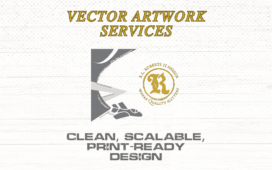
It’s time to head to the supply house – and develop relationships with wholesalers
As a contractor, ensuring you have the right parts and equipment at the right time is critical to maintaining your project timelines and keeping your clients satisfied. However, securing these materials from wholesale distributors can sometimes be challenging, especially during peak seasons or when dealing with specialized items. Clear communication, preparation, and relationship-building with your distributors can make all the difference. Here’s how you can ensure you get the parts and equipment you need when you need them.
1. Communicate Clearly and Proactively
- Establish Clear Expectations: At the start of any business relationship, set clear expectations with your distributor regarding delivery times, availability of parts, and their ability to fulfill special orders. This can help prevent misunderstandings later on.
- Regular Check-ins: Maintain open lines of communication with your distributor. Regular check-ins about upcoming projects or potential high-demand items can help your distributor plan accordingly and ensure they have the stock you’ll need.
- Order Confirmations: Always confirm your orders in writing. This can include emailing an order summary after a phone conversation or double-checking the order details in person. Written confirmation helps avoid any miscommunications.
2. Always Have Part Numbers Ready
- Use Accurate Part Numbers: Providing the exact part number when placing an order significantly reduces the chances of errors. This ensures that your distributor can quickly and accurately process your order without needing additional clarification.
- Keep an Updated Catalog: Maintain an updated catalog or list of the parts you frequently use, including their part numbers. This can speed up the ordering process, especially when you’re in a rush.
- Leverage Technology: Many distributors offer online ordering platforms where you can search for parts by their number. Utilizing these platforms can minimize the chances of ordering the wrong item.
3. Plan Ahead and Order Early
- Anticipate Your Needs: Plan your projects well in advance and order parts as early as possible. This is especially important for items that are known to have longer lead times or are in high demand.
- Bulk Orders for Common Items: For items you use frequently, consider placing bulk orders. This ensures you have a ready supply and reduces the risk of running out when you need them most.
- Set Up Automatic Reorders: If your distributor offers it, consider setting up automatic reorders for certain items. This ensures you’ll never run low on essential parts.
4. Expect Part Delays and Prepare Accordingly
- Account for Potential Delays: Given the current state of global supply chains, it’s prudent to expect delays in receiving parts and equipment, especially for specialized or less commonly stocked items. Factor these potential delays into your project timelines to avoid last-minute surprises.
- Keep a Buffer Stock: For critical parts that could halt your project if delayed, consider keeping a buffer stock on hand. This can keep your project moving forward even if a part is delayed.
- Maintain Flexibility: Be prepared to adjust your project schedule or find alternative solutions if a delay occurs. Flexibility in your planning and execution can help minimize the impact of delays on your overall project timeline.
5. Build Strong Relationships with Distributors
- Foster Trust and Reliability: Building a strong, reliable relationship with your distributor can pay dividends in the long run. When a distributor knows you as a reliable, regular customer, they may be more likely to go the extra mile to ensure your needs are met.
- Be a Loyal Customer: Loyalty can lead to better service. If you regularly order from the same distributor, they may prioritize your orders or offer you better terms, such as discounts or faster delivery.
- Provide Feedback: If you encounter any issues with your orders, communicate them constructively with your distributor. Providing feedback helps them improve their service and ensures that your future orders go smoothly.
6. Stay Informed About Market Trends and Supply Chain Issues
- Monitor Industry News: Stay informed about any supply chain disruptions, material shortages, or market trends that might affect the availability of parts and equipment. This allows you to adjust your orders accordingly and avoid delays.
- Diversify Your Suppliers: While it’s great to have a primary distributor, consider having secondary suppliers for backup, especially for critical parts. This ensures that you’re not left without options if your primary distributor is unable to fulfill an order.
7. Leverage Distributor Expertise
- Ask for Recommendations: Don’t hesitate to ask your distributor for advice or recommendations on alternative parts or more efficient solutions. Distributors often have valuable industry knowledge and can suggest products that might be better suited for your needs.
- Attend Distributor Events: Many distributors host events, training sessions, or expos. Attending these can provide you with insights into new products and technologies that could benefit your business.
Note from the author: After working as an HVAC distributor in the DMV for over 8 years for R.E. Michel and Aireco Supply, I’ve learned a lot about customer relationships and the importance of maintaining clear communication and maintaining a quality work relationship to get the job at hand DONE.
















